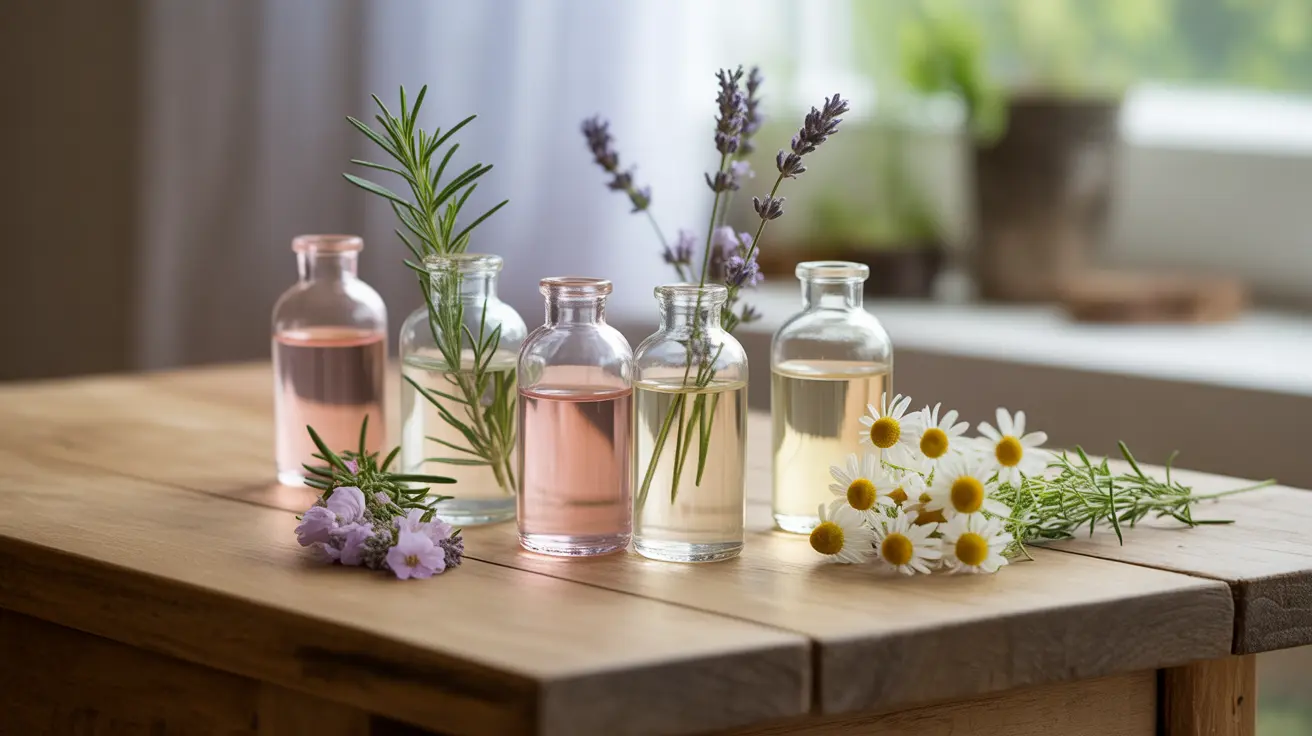Hydrosols, also known as flower waters or plant waters, are the pure, aromatic liquids produced during the steam distillation of plants. These gentle yet potent botanical waters contain the water-soluble components and micro-droplets of essential oils from their source plants, making them valuable tools for skincare and aromatherapy applications.
Unlike their more concentrated cousins, essential oils, hydrosols offer a milder, more balanced approach to plant-based wellness. Their natural composition makes them particularly suitable for those seeking gentle yet effective natural alternatives in their self-care routines.
What Are Hydrosols and Their Production Process
Hydrosols are created through a careful steam distillation process where steam passes through plant material, extracting both water-soluble compounds and tiny amounts of essential oils. As the steam cools and condenses, it forms a pure, aromatic water that contains the essence of the plant.
During production, the plant material is placed in a still, and steam is introduced. As the steam rises through the plant matter, it carries volatile compounds with it. When cooled, this steam condenses into hydrosol, containing both the water-soluble components and micro-particles of essential oils.
Benefits of Hydrosols in Skincare
Hydrosols offer numerous advantages for skin health and maintenance:
- Natural pH-balancing properties
- Gentle hydration without heaviness
- Anti-inflammatory benefits
- Soothing properties for sensitive skin
- Natural toning capabilities
These plant waters can be particularly effective when integrated into a daily skincare routine, offering a natural way to maintain skin health without harsh chemicals or synthetic ingredients.
Common Types of Hydrosols and Their Uses
Rose Hydrosol
Rose hydrosol is renowned for its skin-soothing and anti-aging properties. It helps balance skin tone, reduce redness, and provide deep hydration, making it particularly beneficial for mature or dry skin types.
Lavender Hydrosol
Known for its calming properties, lavender hydrosol helps soothe irritated skin and promote relaxation. It's particularly effective for sensitive skin conditions and can help balance oil production.
Chamomile Hydrosol
Chamomile hydrosol offers anti-inflammatory benefits and is excellent for sensitive, reactive skin. It can help reduce redness and calm irritated skin conditions.
Aromatherapy Applications
Hydrosols excel in aromatherapy applications due to their gentle nature and therapeutic properties. They can be used in several ways:
- Room sprays for environmental freshening
- Linen sprays for relaxation
- Personal body mists
- Meditation aids
- Natural air fresheners
Safety and Usage Guidelines
While hydrosols are generally safe, it's important to follow proper usage guidelines:
- Always perform a patch test before full application
- Store in cool, dark places to maintain freshness
- Use within 6-12 months of opening
- Choose high-quality, properly preserved products
- Discontinue use if irritation occurs
Frequently Asked Questions
What are hydrosols and how are they made? Hydrosols are the aromatic water byproducts of steam distillation of plants. They're created when steam passes through plant material, condensing into a water that contains the plant's water-soluble compounds and tiny amounts of essential oils.
What are the benefits of using hydrosols for skincare? Hydrosols offer gentle hydration, pH balancing, and skin-soothing properties. They can help tone the skin, reduce inflammation, and provide natural moisture without clogging pores or leaving residue.
How can hydrosols be used in aromatherapy to promote relaxation and stress relief? Hydrosols can be used as room sprays, linen mists, or personal body sprays. Their natural aromatic properties help create a calming environment and can be used during meditation or relaxation practices.
Are hydrosols safe to use on sensitive skin and what precautions should be taken? Yes, hydrosols are generally safe for sensitive skin due to their gentle nature. However, always perform a patch test first, use quality products, and discontinue use if irritation occurs.
What are common hydrosols and how do their uses differ? Different hydrosols offer unique benefits: rose hydrosol is excellent for anti-aging and hydration, lavender helps calm and balance the skin, and chamomile is particularly good for sensitive and irritated skin conditions.




